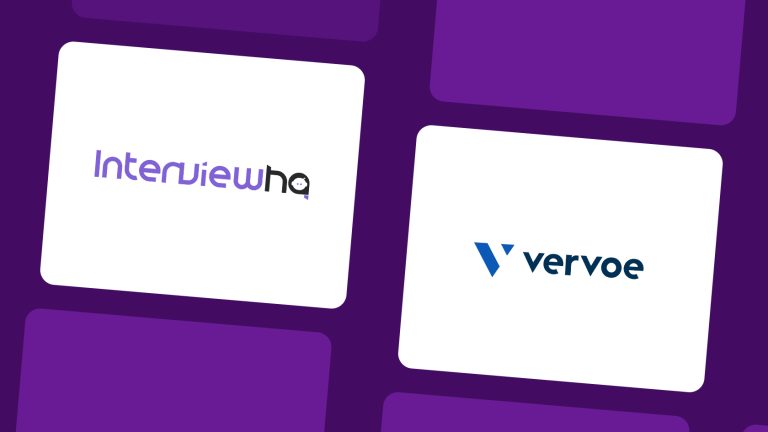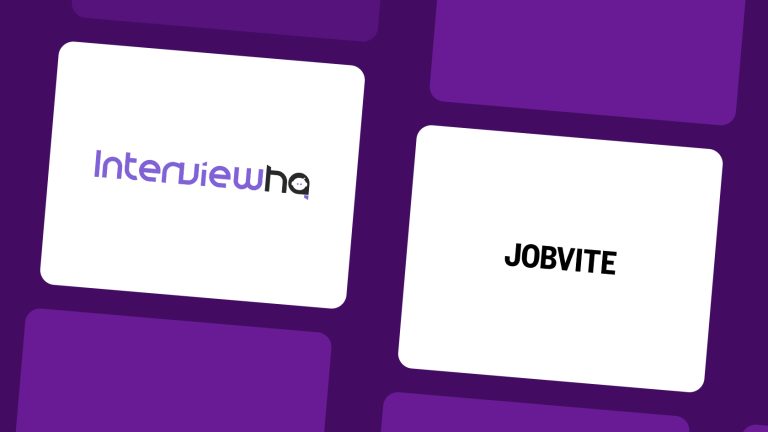AI has brought about significant changes in various sectors and recruitment is no exception.
Recruiters now have a wide range of tools and platforms designed to make the hiring process seamless. However, many people believe AI is coming for their jobs, or that it will completely replace them. A recent study showed that almost 69% of college graduates in the United States believe AI could take their job.
Regardless of the growing worries, when it comes to recruitment, there are aspects of it that AI will never be able to replicate.
In this article, we will explore the rise of AI in recruitment and share reasons why AI can never replace recruiters.
The Rise Of AI In Recruitment
The adoption of AI is happening quickly and without a doubt, it has come with several advantages.
One of AI’s greatest strengths is its ability to process large amounts of data and identify patterns quickly. In recruitment, this means that AI can analyze thousands of CVs and applications in a short time and select the most suitable candidates. This saves recruiters valuable time and allows them to concentrate on other tasks.
Also, AI can assist in evaluating the skills and competencies of candidates. It uses an algorithm to assess a candidate’s relevant experience and skills to match them to the requirements of a job. This enables potential candidates to be identified more quickly and accurately.
85% of employers who use automation say it helps them stay efficient and save time. It’s no wonder that it’s growing fast. But how far can it grow and will it grow to the point of taking over recruiters? Let’s find out.
5 Reasons Why AI Will Never Replace Recruiters
Over the past 20 years technology has advanced faster than ever. It will continue to advance but one thing is certain, humans will still be here.
Humans create technology for other humans, and using technology in Human Resources and Recruitment was created with one goal: Efficiency.
So, here are five reasons why AI can’t take the jobs of recruiters.
1. Human Connection and Understanding
One of the reasons why AI will never replace recruiters is the innate human element involved in recruitment.
Building meaningful connections, communicating, and empathizing with candidates are deeply ingrained in human behavior. They are difficult to replicate artificially.
Recruiters have empathy and emotional intelligence that AI simply cannot match.
They can read between the lines of a resume, pick up on subtle cues in an interview, and provide personalized support to candidates throughout the hiring process. This human touch is essential for establishing trust and rapport with candidates, which leads to better hiring outcomes.
2. Complex Decision-Making
Recruitment often involves complex decision-making processes that require more than just data analysis. AI algorithms can analyze large volumes of data to identify patterns and trends but don’t understand the deeper parts of human behavior and motivations.
Recruiters are skilled at assessing a candidate’s fit for a particular role based not only on their qualifications but also on their soft skills, personality, and cultural fit within an organization.
They can ask probing questions, conduct in-depth interviews, and evaluate candidates based on their potential for growth and development. These subjective judgments are difficult to codify into algorithms and are better suited to human judgment.
3. Unpredictable Nature of Human Behavior
Human behavior is inherently unpredictable, and no amount of data analysis or predictive modeling can fully account for this unpredictability.
AI algorithms can be trained on historical data to make predictions, but cannot anticipate how individual candidates will respond to unique situations or challenges.
Recruiters are good at navigating the unpredictable nature of human behavior and can adapt their approach accordingly.
They can quickly pivot strategies, address concerns, and provide guidance to candidates based on real-time feedback and insights. This agility and flexibility are essential for effectively managing the dynamic nature of the recruitment process.
4. Ethical and Bias Considerations
AI algorithms are only as unbiased as the data they are trained on, and there is a risk of perpetuating bias and discrimination if not carefully monitored and controlled.
Biases can creep into AI systems at various stages, from data collection and preprocessing to algorithm design and decision-making.
Recruiters play a role in mitigating bias and ensuring fairness throughout the recruitment process.
They can challenge assumptions, question biases, and make informed decisions based on a candidate’s qualifications and potential rather than superficial characteristics
5. Relationship Building and Networking
Recruitment is not just about filling open positions. It’s also about building relationships and networks within the industry.
Recruiters often leverage their extensive networks to source top talent, gather market intelligence, and establish partnerships with other organizations.
Wrapping Up
The potential of AI to transform the recruiting sector is undeniable, but it will never replace the role of human recruiters.
Recruiters possess a distinctive blend of attributes, such as empathy, emotional intelligence, adaptability, and ethical discernment, which are challenging to replicate artificially.
Instead of perceiving AI as a threat, view it as a means to improve performance and make things easier.
Understanding the capabilities and limitations of AI puts you in the best position to leverage it to become better, faster, and smarter at what you do.




